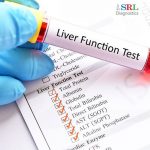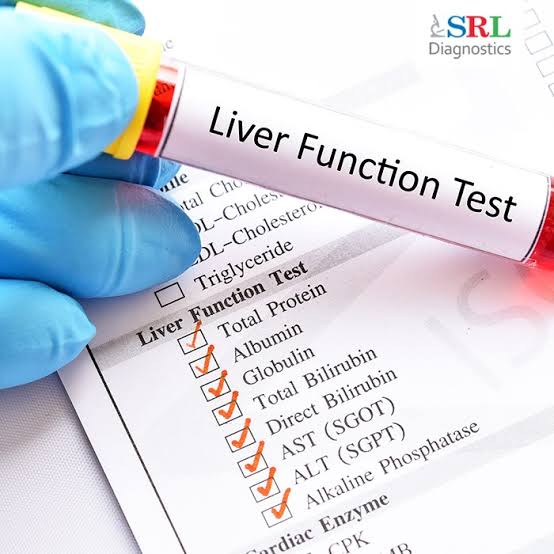An article on the A to Z of liver function tests, serum bilirubin level, serum proteins, Serum aspartate amino transferase (also known as SGOT), serum alkaline phosphatase, serum alanine amino transferase (also known as SGPT) and coagulation profile. Article also include the cost plus interpretation of liver function tests.
The numerous functions of the liver can only be assessed by a combination of several tests; no single all embracing test is available. The large functional reserve or the liver must mean,
however, that these tests are far from sensitive; 85% of liver tissue may be destroyed without affecting individual tests.
READ ALSO: 20 Common blood tests and their cost.
Serum Bilirubin Level: The normal value varies from laboratory to laboratory but seldom exceeds 17 umol/L comprising both conjugated and unconjugated bilirubin.
The relative amount of the two forms of bilirubin is of no value in differentiating the obstructive from the hepatocellular or haemolytic variety of jaundice.
Normal range: direct serum bilirubin, 0-9umol/L, indirect serum bilirubin, 2-10umoI/L and totaI serum bilirubin, 2-17umol/L.
Plasma protein: Its estimation is one of the most accurate reflections of liver function because the liver is the sole source of these proteins. Immunoglobulins are, however, largely
produced in the reticulo-endothelial system. Levels of plasma albumin below 30g/L indicate severe functional impairment.
The normal level of plasma protein ranges from 60-85g/L. The albumin/globulin ratio, however, varies widely in different localities presumably from changes in levels of immunoglobulins.
In several African countries the ratio is 30-46/30-45 compared with the European figures of 37-49/30-33.
The various flocculation tests are dependent on the relative changes in the plasma proteins usually in the direction of decreasing albumin and rising globulin level.

Three such tests are in common use: cephalin flocculation is perhaps the most accurate but thymol turbidity and zinc sulphate turbidity are also frequently done.
Enzyme Tests: Of the numerous enzymes contained in the hepatocytes, three have been found to show characteristic elevation in the blood in hepatic dysfunction.
The serum glutamic oxaloacetic transaminase. (Aspartate amino transferase, SGOT) is also present in myocardial and skeletal muscle and kidney so that cellular damage involving these tissues leads to rise in the enzyme level.
The serum glutamic pyruvic oxaloacetic transaminase (Alanine amino-transferase, SGPT) is more specific to hepatic injury although minor
elevations are notable with myocardial damage.
Normal levels vary from laboratory to laboratory and the values in the locality should always be ascertained.
In African populations the normal ranges are 3-24U/L (SGOT) and 3-18 (SGPT). Alkaline phosphatase is normally excreted by the hepatocytes through the biliary passages; elevation of this enzyme level, therefore, provides information on the patency of the
biliary passages.
It is very sensitive, showing significant elevation in 95% of biliary tract obstruction.
In space occupying lesions such as primary or metastatic cancer or hepatic abscesses, the alkaline phosphatase may be elevated long before the other tests of hepatic function show any changes.
Normal alkaline phosphatase level varies from 98-279U/L (20- 100 SI units). Values in excess of 300U/L, favour obstruction; uncomplicated hepatocellular lesions seldom produce levels exceeding this limit.
Tests for Coagulation Factors
Plasma levels of several clouing factors fall in liver disease; these include factor V, the Christmas factor, factor VII and fibrinogen, but perhaps the most important is prothrombin.
Prothrombin levels are depressed in obstructive jaundice because absence of bile from the upper intestine decreases absorption of fat-soluble Vitamin K, essential for production of this factor , and this is aggravated by accompanying or indepedently occurring hepatocellular dysfunction.
An improvement in prothrombin activity subsequent to parenteral administration of Vitamin K is generally regarded as distinguishing obstructive jaundice from hepatocellular disease.
Cost of liver function tests
Liver function tests cost #6000 in Nigeria currency which is about $30 dollars in American currency.
Please leave a comment.
Source: Principles and Practice of Surgery by Badoe.
Read more on liver function tests on Healthline.
Featured Image : SRL Diagnostics






















[…] READ ALSO: liver function tests […]